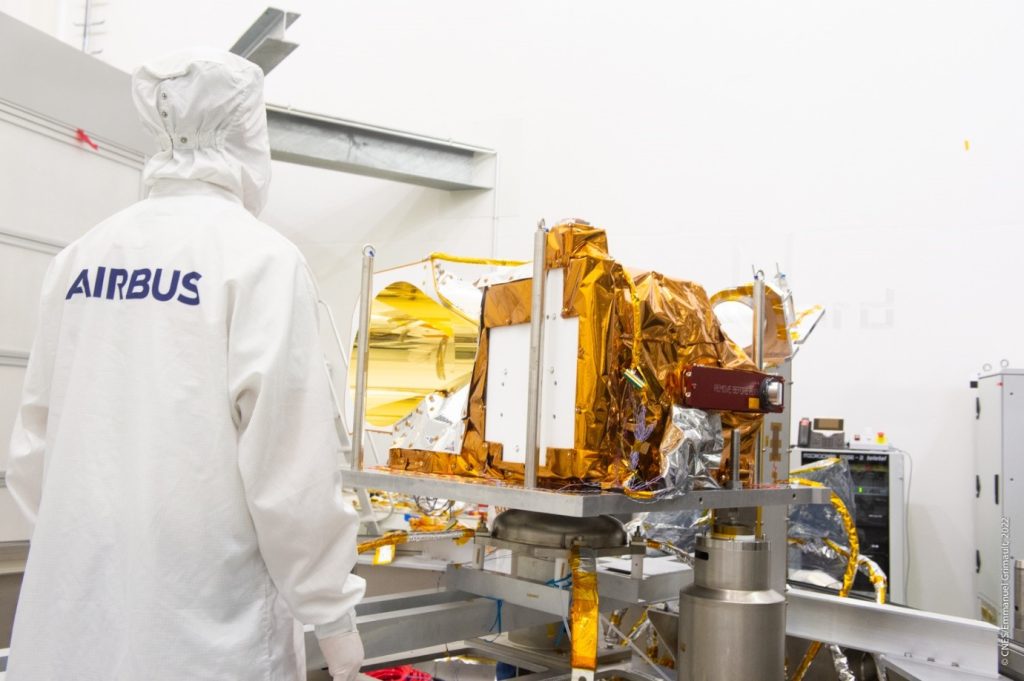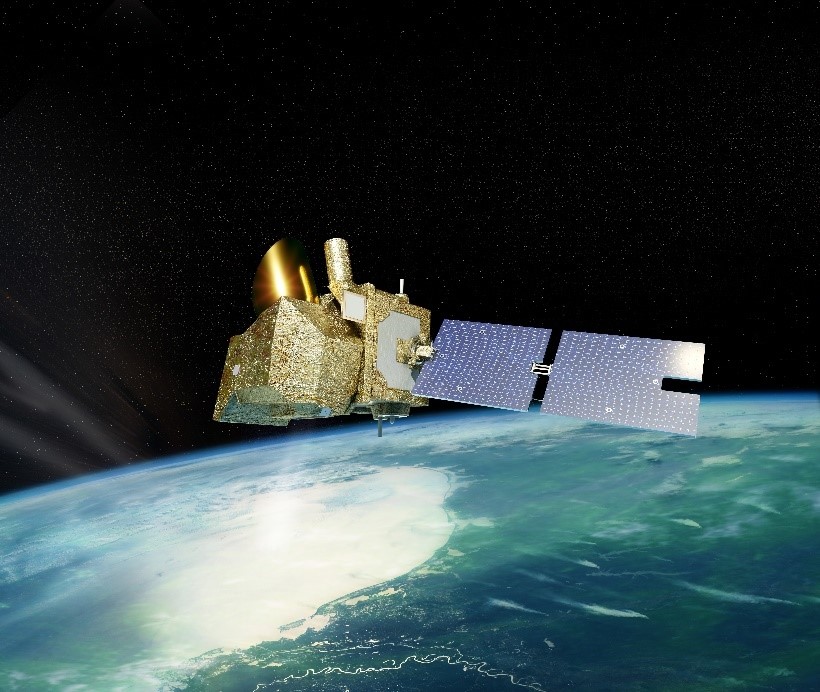Carbon monitoring mission using Leicester expertise ready for launch

Scientists at the National Centre for Earth Observation (NCEO), hosted at Space Park Leicester, have welcomed news that a satellite for monitoring atmospheric carbon dioxide to help tackle climate change has completed assembly and qualification in the UK, and is now ready for launch.
The MicroCarb satellite was delivered by Thales Alenia Space in the UK (TAS UK) on the Harwell Science and Innovation Campus in Oxfordshire, and is on its way to Toulouse, France, where it will await shipment for launch.
University of Leicester and University of Edinburgh scientists, working as part of the National Centre for Earth Observation, are contributing to mission design and will use MicroCarb’s data in contribution to global efforts to measure how much carbon is being emitted by natural processes and how much by human activities. This information will help inform decisions on tackling climate change.
The satellite is designed to quantify sources and sinks of carbon dioxide (CO2)—the principal greenhouse gas—on a global scale. Currently, a lack of data makes it difficult to measure how much CO2 is absorbed by and released into the atmosphere, but such information is vital to gain deeper insights into natural carbon fluxes and inform climate models.
Expertise from the University of Leicester and NCEO has also worked on the mission’s Solar Induced Fluorescence (SIF) retrieval algorithm, a proxy for photosynthetic activity that can provide key information on the carbon cycle, complementing that from CO2 observations.
Dr Rob Parker from the University of Leicester and National Centre for Earth Observation said: “MicroCarb is a great example of how we can work internationally with our partners and make the best use of UK expertise to do exciting science that helps us to better understand how our planet is changing.”
Professor Paul Palmer from the University of Edinburgh and National Centre for Earth Observation said: “This is an exciting moment for the MicroCarb project and a major step towards this important satellite instrument being launched in Earth orbit. A big congratulations to the engineering teams who have characterised the instrument so that it will be able to deliver reliable information about CO2 that we so desperately need.”
Michael Cartwright, also from the University of Leicester and National Centre for Earth Observation, said: “This milestone in the completion of MicroCarb owes a great deal to the collaborative work of the French and UK space agencies, and all designers, engineers and partners involved. Upon launch, the MicroCarb satellite will be amongst the most advanced and capable observing platforms for atmospheric CO2 and solar induced fluorescence, and will help us quantify the carbon cycle better than ever before. I’m personally very much looking forward to utilising this data in the future.”
CNES, the French space agency, was tasked by the French government with overseeing and executing the MicroCarb mission, in partnership with the UK Space Agency and the European Union, which are providing additional funding (£13.9 million from the UK Space Agency). CNES chose Airbus Defence & Space in Toulouse to design and build the instrument and the satellite is built around the agency’s Myriade microsatellite bus.

Over the last year, the satellite has undergone a successful assembly, integration and testing phase, led by TAS UK with support from RAL Space and the UK Space Agency. This involved a series of vibration and thermal vacuum tests; the last stage of environmental testing before verifying its propulsion system.
Andrew Griffith MP, Minister for Space at the Department for Science, Innovation and Technology, said: “MicroCarb’s advanced technology will deliver invaluable and precise data on our planet’s carbon dioxide levels and marks the latest exciting innovation by the UK’s ground-breaking space sector in collaboration with our friends in France.
“Once operational it will inform businesses and decision-makers around the world on the role they can play in tackling climate change and as the technology develops, open new avenues for UK businesses that grow our economy.”
- Find out more about the University of Leicester


